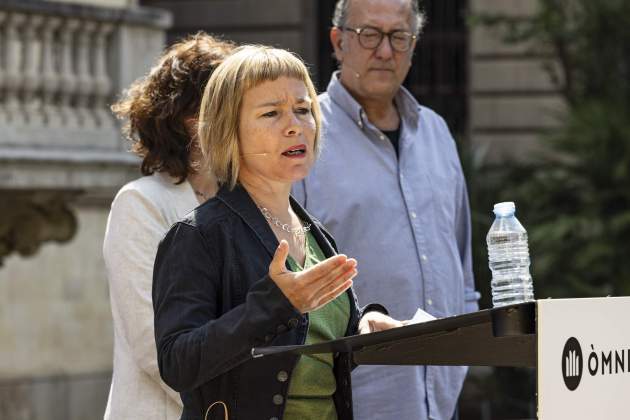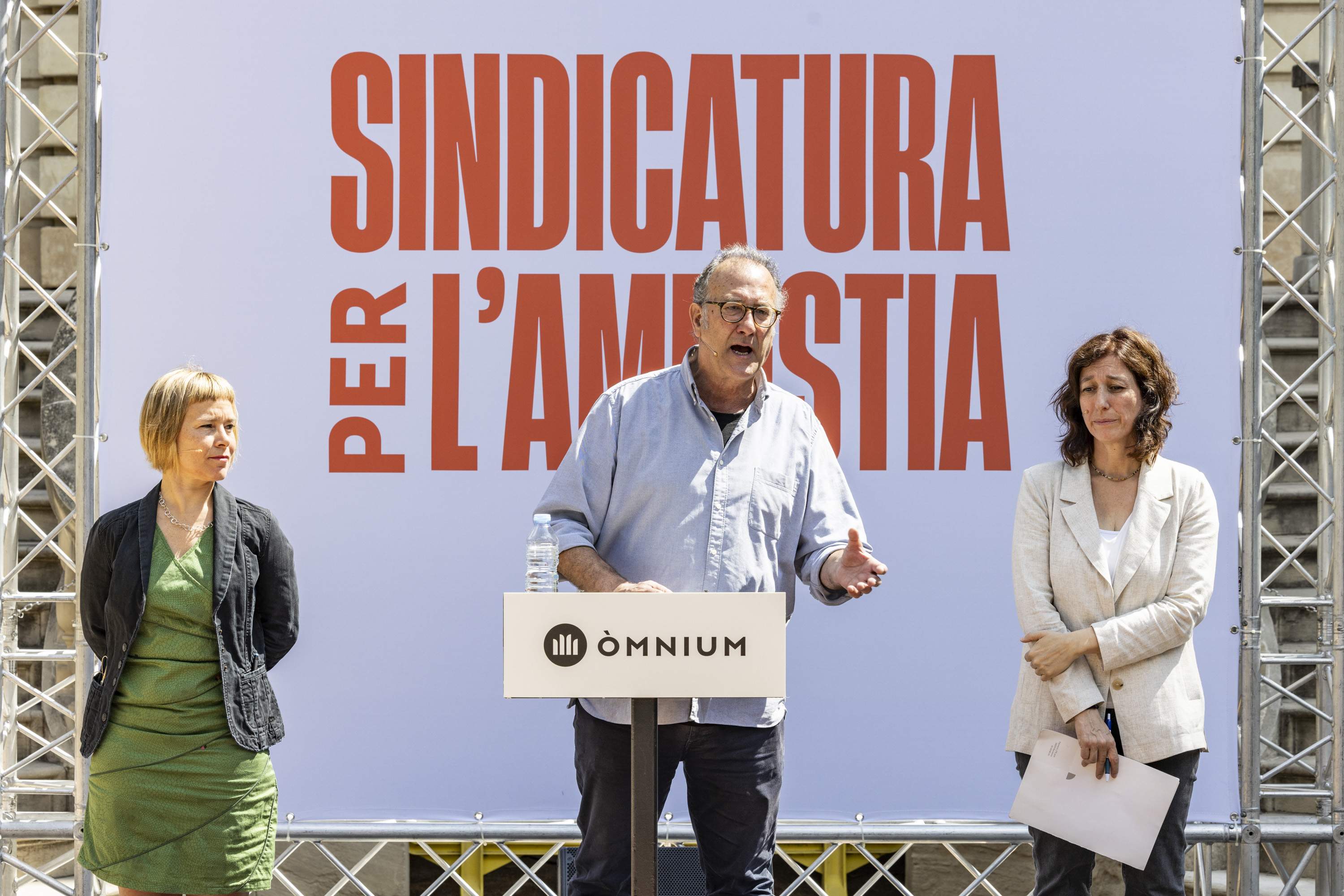A way of avoiding delays, tricks, or boycotts from judges: that is the purpose of a tool announced this Monday by Xavier Antich, president of the Catalan pro-independence organization Òmnium Cultural. The Sindicatura per l'Amnistia ("Amnesty Union") will be a legal tool enabling the 1,616 people who have undergone judicial "retaliation" over the independence process - the figure is an Ómnium estimate - can be accommodated within the newly-passed amnesty law "without delays or tricks or boycotts from judges", despite the fact that the Spanish government has not yet even published it in the official state gazette, days after its approval by the Congress of Deputies. "The Union has a threefold objective: to ensure that the law is complied with; to report violations, and to be a place of encounter for the defence lawyers of those investigated", explained Antich, accompanied by the third vice-president of the body, Marta Garsaball - herself under investigation for the independence process; and the lawyer, Laia Serra. Before the defence lawyers of a number of activists, this Monday in Barcelona, the Omnium president called for all those individuals suffering retaliation, as well as support groups, to share information and doubts in order to carefully monitor the law which decrees the criminal, administrative and accounting termination of all cases related to the Catalan independence process centred on the referendum of 1st October, 2017.
"The amnesty is a tool and the goal is freedom", said Antich. The Òmnium president explained that the Amnesty Union takes over from the Antirepression group, another tool created by the organization, which, with collaboration from other organizations in Catalonia, put figures on the number of people facing state reprisals, which reached a total of 4,584 people in the end. Of these, some were some were not brought to court, in the end (like the 700 Catalan mayors who were investigated). According to Ómnium, there are now approximately 1,616 people to whom the amnesty law can be applied.
Xavier Antich, Òmnium president: "Given the attempts at a boycott of the law by a small group in the Spanish judiciary, who are acting more as an ally of the extreme-right than as guarantors of the rule of law, it is essential to have tools to denounce and to support, accessible to the people facing reprisals and their defence lawyers."
A website for doubts and monitoring
"We are aware that the judiciary wants to destroy the amnesty law or delay it", said Marta Garsaball, and this, she says, is what justifies the creation of the Union, which everyone who wants to report their case or has doubts can access through the website amnistia.omnium.cat. "There will be daily monitoring", he affirmed. On the website, there is a section called the "incident box", with forms which can be used to submit queries or problems. Request forms have also been created to enable those who have paid administrative fines to request their return, as well as for demanding the closure of criminal cases.
It is expected that the courts that will put most obstacles in the path of applying the amnesty law will be the Supreme Court - which sets the criteria for all to follow - and the National Audience. The Supreme Court prosecutors have already made public their view that "the amnesty law is not constitutional" and that, in their opinion, the arrest warrant for exiled Catalan president Carles Puigdemont should not be lifted.
"Judicial hierarchy with its own agenda"
For her part, the lawyer Laia Serra declared that the amnesty law "presents a challenge to lawyers" and emphasized that "it will be necessary to deal with a judicial hierarchy that has its own political agenda". The lawyer also called "for the sharing of resources, as was done with October 1st cases in individual and private prosecutions, because they are strategic litigations" - for example, in the complaint against the Spanish police officers who beat Catalan voters at the October 1st referendum.

Serra also recalled that "individuals have suffered pain and it is necessary to give them redress". The event was attended by some of the lawyers who conducted defence cases for the pro-independence political and social leaders tried in the Supreme Court, such as Jordi Pina and Àlex Solà, and those who have defended activists, such as the director of Irídia, Anaïs Franquesa and the lawyer and now MP-elect for the Comuns, Andrés García Berrio, among others.

"The political conflict is not over. There will be no resolution of the conflict until we can exercise the right to self-determination", concluded Antich, who denounced that the non-publication of the amnesty law is "the responsibility of the Spanish executive".

